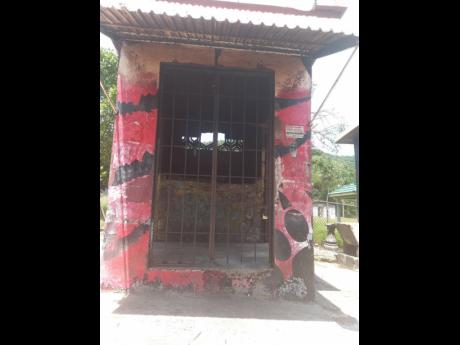Shopkeepers evading health inspectors in Manchester
The Manchester Health Department is having a challenge carrying out routine inspections at some rural shops as operators alert each other to the presence of public health inspectors so they can evade efforts to check on their adherence to health...
The Manchester Health Department is having a challenge carrying out routine inspections at some rural shops as operators alert each other to the presence of public health inspectors so they can evade efforts to check on their adherence to health and safety protocols.
“You stop at the first shop, and one person up the road call the other persons to tell them that inspectors are in the area. By the time you get to the other areas, everybody is closed ... . It doesn’t happen every day, but it does happen,” the parish’s chief public health inspector, Charmaine Palmer-Cross, told The Gleaner.
A rural shop owner, who spoke to The Gleaner on condition of anonymity, admitted that she has had to evade inspections in the past because she cannot afford to have her business closed.
“We work with each other down here. If the inspector deh in the area, we call each other and give them the heads up because we can’t afford fi lock up we shop in a dem hard time yah, and what them tell you to get sometimes expensive,” the shopkeeper said.
The shop owner claimed that indoor wash sinks and special material for countertops are things she knows she will be required to get but explained that she cannot afford them.
“I have my updated food handler’s permit. My place is clean. I set up my makeshift handwashing station, but I know that won’t be enough for them. And if them lock me down, me cannot open until me get these things and probably it cost me more than what I make here in a month ... ,” she said. “That’s why me hide them out, and when them gone, me open back the shop or just partially open one window so customers know we still doing business.”
Palmer Cross, however, said that ordering closure is a last resort and the health department has not served a significant number of such notices in the parish.
In addition to 10 stalls and approximately three shops at the Melrose Yam Park, Palmer Cross said that only five other facilities across the parish have been ordered closed.
She said that among the reasons some facilities were ordered closed were poor wastewater management, pest infestation, and a lack of water.
“Our (Manchester’s) water system is not always the best, so we encourage persons to put [in] back-up water supply. However, if they don’t have back-up water supply and we realise that a week has passed and there is no water, then we definitely will close for that as well,” Palmer Cross told The Gleaner, adding that other extreme general sanitation issues would also warrant immediate closure.
“Most times when you reach closure, they (business operators) try to do everything in their power to comply unless it is out of their remit. Sometimes you will have an owner who doesn’t want them (operators) to do anything to the property, but usually it’s not the norm,” she added.
BILLS MOUNTING
Vendors at the Melrose Yam Park say their bills are now piling up, following the closure of the facility more than a month ago as the health department flagged wastewater-management issues, the need for improved bathroom facilities, and improper food-storage methods by the vendors, among other issues.
Winston Palmer, CEO of the Manchester Municipal Corporation, which oversees the facility, said that work has begun on the bathroom and sewerage system.
He, however, stated that the vendors will need to ensure that they are also compliant with health and sanitation protocols before the facility is reopened.
Palmer-Cross said that once the businesses have addressed the issues, operators are expected to write to the medical officer of health, signalling compliance. If the inspectors are satisfied after carrying out a re-inspection, the facilities are given the green light for reopening.
While a number of operators may be prone to falling out of line with the health and sanitation protocols, Palmer Cross said that the parish does not see many repeat offenders.

